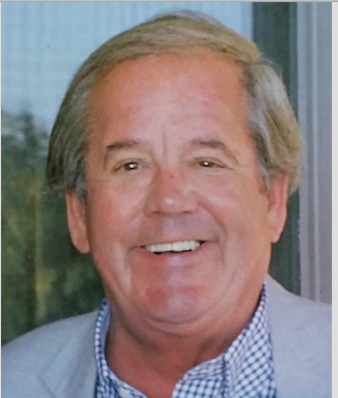MOBY THE METAPHOR
By: T. D. Duff, Tonka Bay, Minnesota
Our current predicament and ultimate fate are most presciently portrayed to us in Herman Melville's novel of a fated voyage of the whaling ship Moby Dick. Melville writes of our maniacal and murderous obsessions, our hubris, our violent behaviors, our moral weakness, and inevitable self-destruction, in his saga of the journey by the mentally ill captain Ahab, for the great white whale. Like William Shakespeare during Elizabethan England and Fyodor Dostoyevsky in Czarist Russia, Melville is America's great oracle.
Written in 1851, it would be seventy years before the originality and importance of Moby Dick would receive high praise and wide popularity, called by the critics a "prophetic song." Contained in the pages of Moby Dick was indeed the genetic code of America.
In Moby Dick Melville describes the United States in the form of the whaling ship the Pequod, named after the Indian tribe that was exterminated in 1838 by the Puritans. The ship's thirty-man crew, a mixture of races and creeds, represent the thirty states in the Union when Melville wrote the novel. The objective of the voyage is the hunt for the massive white whale, Moby Dick, which, in a previous encounter, dismembered one of Ahab's legs.
The novel is narrated in 1850 by Ishmael, a vicarious sailor who signs on for the voyage on the Pequod, which leaves Nantucket on a snowy Christmas Day. Ahab remains hidden in his cabin for days, until he appears to incite the crew to hunt down and destroy the enormous white whale.
As the ship approaches the equator Moby Dick appears and Ahab launches his whaleboat in pursuit. Moby Dick smashes the boat, and when the hunt resumes the next day, the whale is harpooned. The wounded whale again attacks Ahab's whaleboat and a crew member is pulled into the sea and drowned. The white whale then rams the Pequod and the ship sinks. The hemp harpoon line that is attached to Moby Dick flies out of the boat and garrotes Ahab. The other whaleboats along with the remaining ship's crew, are sucked into the swirling vortex of the sea created by the shattered Pequod, and Ishmael alone survives.
Ahab's disastrous desires in the novel are very real, but his self-destructive rage ensures the Pequod's fate. Those on the ship seem to know they are doomed in some manner, just as many of us know that a gluttonous consumer culture based on uncontrollable corporate, unbridled exploitation of the earth and the continued extraction of fossil fuels is doomed.
Like Ahab and his crew, we rationalize our collective consumer madness. Even with the flashing warning signals before us, even with large segments of the country living in Depression-like conditions, we genuflect slavishly to the enticing illusions provided to us by the oligarchs of limitless power, wealth and technological might. It is a system that is literally destroying us, yet we claim it our religion.
The crisis we now confront is the aggregation of a 500-year global quest of conquering, plundering, exploiting, raping, pillaging and polluting the earth. Europeans and Euro-Americans have killed off all the indigenous communities that stood in their way. The high-tech and scientific forces that brought about unparalleled riches and supreme military and economic power for a tiny global cabal are now the forces that doom us.
The last days of any civilized people, when populations are averting their attention from the criminal realities before them, become festivals of self-indulgent hedonism and folly. This is how Rome imploded, and the Ottoman and Austro-Hungarian Empire. Men and women of shocking mediocrity and depravity, like the current POTUS and his shills, assume political control. Currently, charlatans and frauds fill the airwaves of hate, and intellectuals are ridiculed. Force and militarism, with their testosterone-driven hyper-masculine ethic, are promoted. The mania for hope controlled by the right-wing media requires the silencing of any truth that is not childishly optimistic.
Melville, who had been a sailor of clipper ships and whalers, was keenly aware that the wealth of industrialized countries was violently seized by Europeans and Americans from the poor of the earth. All the authority figures on the Pequod were white men--Ahab, Starbuck, Flask and Stubb. All the dirty work on the ship was done by men of color.
The whalers in Moby Dick were paid by the amount of oil they could produce, and they made no effort to regard it as anything more than a commodity, whose other parts, head, blubber and ambergris, were of no value to them. The rest of it, the tons of meat, bones and guts were simply discarded back into the sea, creating festering rafts of offal that attracted birds, fish and sharks. Just as the skinned corpses of buffaloes and Native Americans would blanket the prairies of the American West, so did the headless gray remains of the whales litter the Pacific Ocean in the early nineteenth century.
Moby Dick, as moral metaphor, rams and sinks the Pequod, and the whirlpool formed by the ship's descent, our consumer descent, swallows all who followed Ahab, except the narrator Ishmael.
"And the great shroud of the sea rolled on, as it rolled five-thousand years ago."





